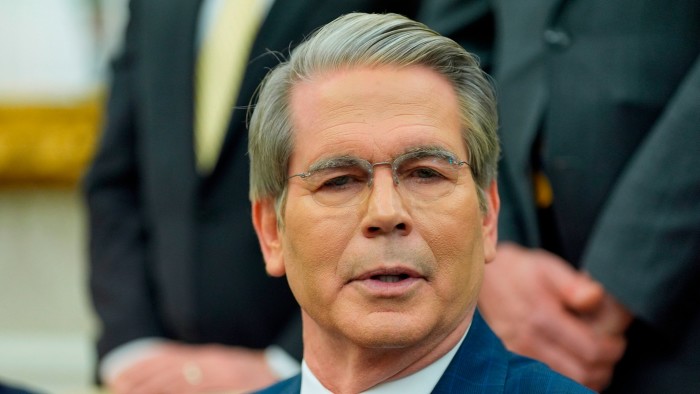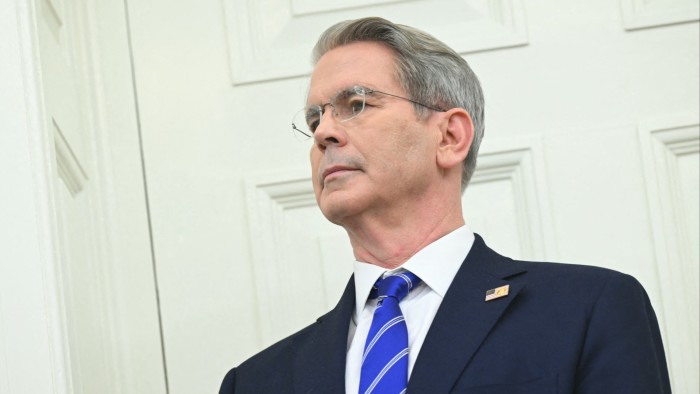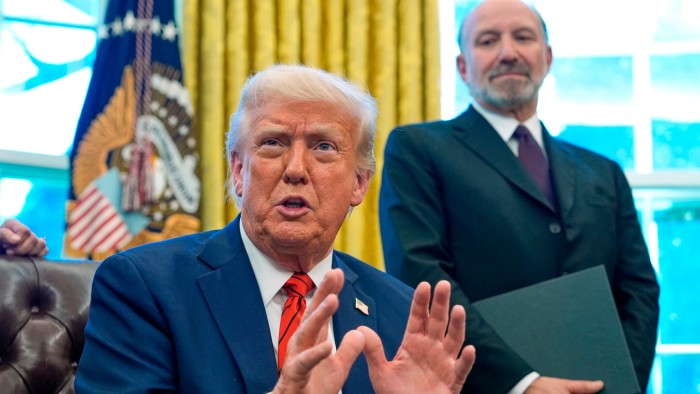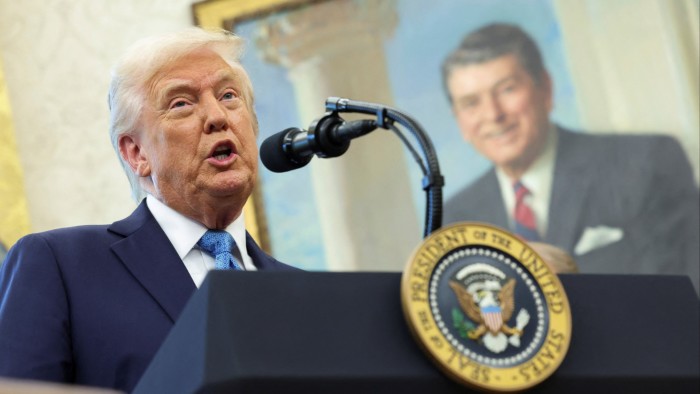US markets rally as Treasury secretary says China trade war is ‘unsustainable’

Unlock the White House Watch newsletter for free
Your guide to what Trump’s second term means for Washington, business and the world
Wall Street stocks rallied and oil prices jumped on Tuesday after the US Treasury secretary said a trade war with China was “unsustainable”.
Scott Bessent told investors at a conference hosted by JPMorgan that he expected the two countries would reach a deal at some point, according to people familiar with his comments.
The Treasury secretary said the high tariffs the US and China have imposed on each other’s imports amounted to what were in effect trade embargoes and added that the status quo was “unsustainable”. Bessent also said that President Donald Trump was not trying to decouple from China.
Trump has slapped a 145 per cent tariff on goods from China, while Beijing has responded with retaliatory tariffs that total 125 per cent.
Markets, which had opened higher following a sell-off in the previous session, climbed further on Bessent’s comments, which were first reported by Bloomberg.
The blue-chip S&P 500 was up 2.6 per cent by early afternoon in New York while the tech-heavy Nasdaq Composite was up 3.1 per cent. Both indices fell sharply on Monday on fears that the US president might fire Federal Reserve chair Jay Powell.
In commodity markets, Brent crude, the international oil benchmark, rose 2.6 per cent to $67.98 a barrel on hopes that the worst aspects of a global trade war might be avoided. Gold, a safe haven asset that hit a record $3,500 a troy ounce earlier on Tuesday, retreated 1 per cent to $3,388.
Earlier in the day John Paulson, the billionaire hedge fund manager and Trump supporter, struck a $1bn deal alongside Novagold Resources for an Alaska gold project.
“The general level of uncertainty, both economically and politically, is driving the price of gold,” Paulson told the Financial Times.
“I think this trend will continue, that gold will become the alternative reserve currency,” he added. “And it’s not just among central banks, but also for private individuals, which don’t want to face the risk of confiscation, currency controls or devaluation given inflation.”
Although Bessent expressed optimism that a deal would be reached at some point, he cautioned that there were no diplomatic negotiations between the countries to end the trade war.
Two people familiar with his remarks said however that there were no signs that Beijing and Washington were anywhere close to finding a solution and that markets were reading too much into his remarks.
One person said it was unclear if Trump agreed with his Treasury secretary. The White House and Treasury did not reply to requests for comment.
Asked about the comments at a White House press briefing, Karoline Leavitt, the press secretary, said Trump believed that the US was “doing very well in respect to a potential trade deal with China”.
But people familiar with the situation in Washington and Beijing stressed that there were no talks between the capitals on resolving the dispute. China has made clear to the White House that it views its approach on tariffs as a form of bullying and will not capitulate.
“This is all messaging to hold the markets together while these negotiations are ongoing,” said Steven Blitz, chief US economist at TS Lombard. “Bessent is stating an obvious fact.”






